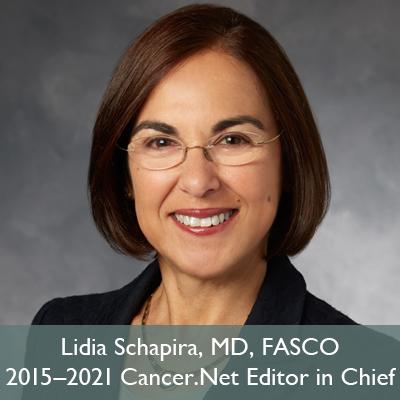
No time is more special for the cancer community than the first weekend in June, which is when the American Society of Clinical Oncology (ASCO) Annual Meeting convenes in Chicago. This meeting regularly draws more than 30,000 attendees from around the world, including experts, clinicians, and patient advocates. It’s important to remember that cancer research is a joint enterprise between scientists and patients, with the common goal of improving available treatments and, in so doing, lessening suffering and loss. 
The ASCO Annual Meeting, and other research conferences that occur around the world, provides a forum for the presentation of findings of research studies. It also gives researchers and clinicians a chance to exchange ideas and to network, and this provides an important stimulus for the creation of ideas that lead to new research. But why is there a meeting? Let’s review what happens at these meetings and why they are they important. This context can show what this meeting means for you.
#1. Research answers questions in safer ways
Large numbers of cancer research studies are conducted each year. These studies are designed to answer a question that scientists don’t know the answer to. Studies that are testing a new drug go through many phases of research. Doses are carefully determined during an early stage of the study with a small group of patients. After that, the new drug is compared to the standard therapy for that condition or disease. If the study results eventually show that this drug safely benefits patients, it can be made available for prescription.
The design of research studies must follow a very strict format, and their results must be reported in a specific way. If you have participated in a clinical trial, you know that there are a lot of steps involved in clinical trials. Each study has specific criteria, called eligibility criteria, that are designed to keep patients safe and also to ensure that the data collected is informative. If a patient does not meet these criteria, he or she cannot participate in the study. And participants must go through a long process to become familiar with the trial, provide informed consent, and understand what tasks and processes are involved.
#2. Meetings play a central role in reporting research results
Researchers first report their study results at scientific meetings like the ASCO Annual Meeting. Then, they may choose to publish the study results in peer-reviewed journals. Peer review is a process by which a study is examined by other experts in the field who have no ties to the study or the study authors. This ensures that the study results receive an objective, unbiased evaluation. The study authors must submit a detailed report of how they conducted their research, called the methods section, and how they analyzed the data using statistics.
It must be mentioned that if a study shows that a new treatment is not better than the current treatment, those results are just as important and are presented at meetings and published in scientific journals. When it comes to scientific research, we can learn just as much from failure as from success.
People who participate in clinical trials often want to know the results of their trials. Researchers usually do provide updates to their study participants.
#3. Patient participation is essential
Patient participation in studies is essential to advancing cancer research. But patients who are thinking about joining a clinical trial often have many questions, and they should feel empowered to ask the research team these questions. Researchers try to reduce the risk to study participants as much as possible, but there still is risk when a new treatment is involved. This is why I think of clinical research as a contract between the patient and the researchers. Both parties have responsibilities and expectations that need to be clearly stated and agreed to before the research begins.
When you see the research reported at the Annual Meeting and other big research conferences, now you know what it means for you. Researchers have spent a long time figuring out what questions they need to ask. Then they study how they’ll answer the question and present it at a meeting. If the results are well received, they may also publish their results in a journal. But none of this could ever happen, without the contribution of patients.
Stay informed
You can keep up with the news coming from the ASCO Annual Meeting by signing up for the Inside Cancer.Net e-newsletter. A special edition will be delivered right to your inbox every day of the meeting. Or visit the Cancer.Net Blog every day for reports from Chicago. You can also follow Cancer.Net on Facebook and Twitter.
